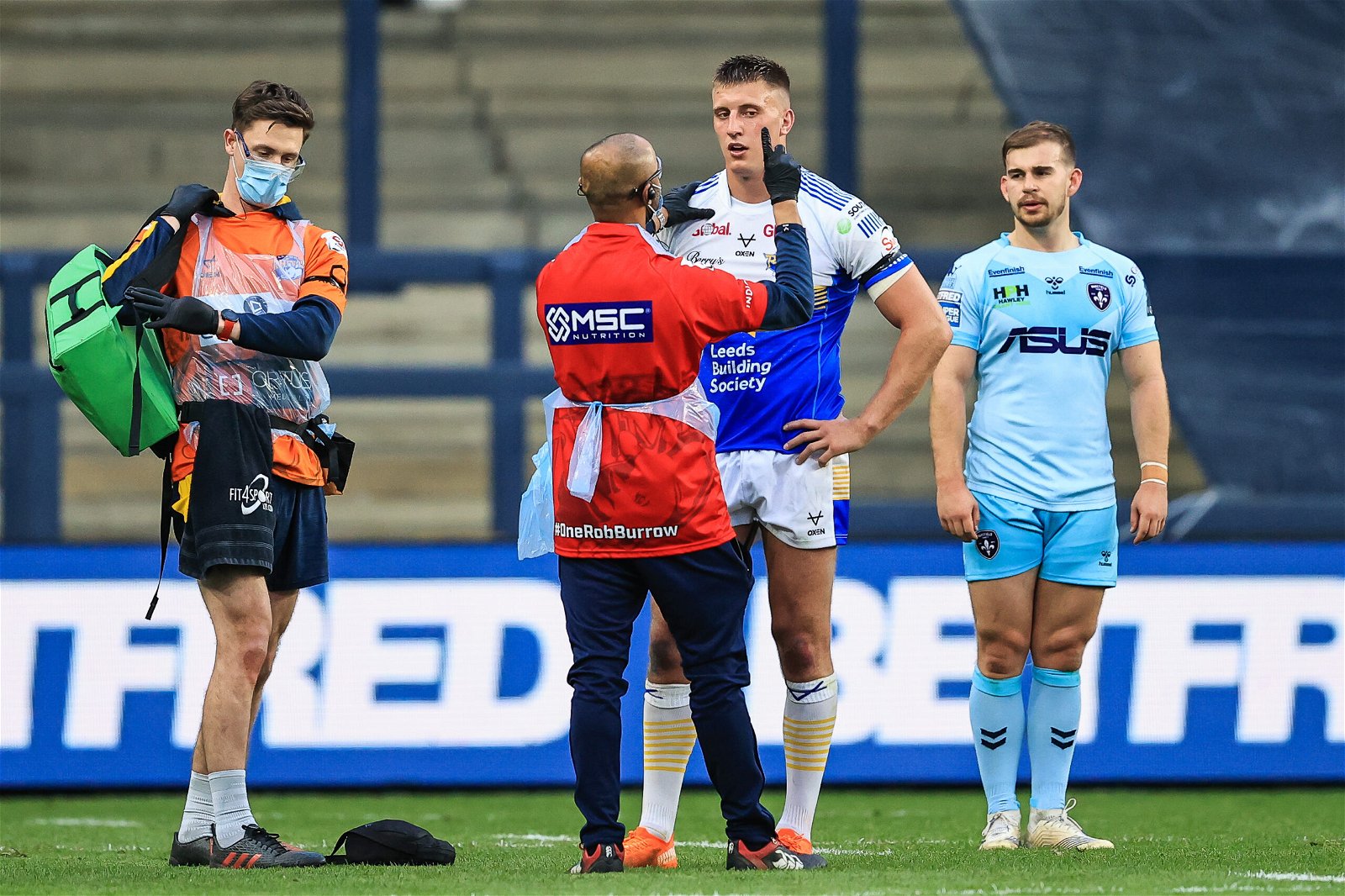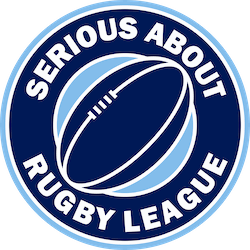
Head and neck injuries are becoming more and more common in today’s game.
In 2020, Leeds captain Stevie Ward’s career came to an end due to concussion and still to this day he suffers from concussion symptoms.
How do we deal with this? For starters I feel that we should commend the sport for the steps already taken. The Head Injury Assessment was a step in the right direction as is the arrival of gumshields that indicate when a concussion may have been sustained. Moreover, a clamp down on head contact has already been seen this season.
But what else can we do? Right now, if an opposition player makes contact with a player’s head both teams are negatively affected. The opposition player should receive some sort of punishment but it’s highly likely that the player hit will miss the rest of the game. This doesn’t seem fair and is another problem with the way we treat head injuries at the moment.
In rugby league, we’ve always had a mysterious 18th man. The player in the squad closest to the starting 17 who trains with the team before the game, is trusted to take the kicking tee out for kick offs and is drafted in if there’s a last minute injury.
Last year season the NRL began using this 18th following a head injury as an emergency substitute and perhaps it’s time Super League should consider doing the same especially after Alex Mellor’s injury last night with the Leeds backrower sadly being stretchered off.
First and foremost, this would alleviate the pressure on the injured player. Right now it feels like they have to pass their HIA otherwise their teammates will have to do it tough, a re-jig may be required and the side will be at a severe disadvantage. But allowing the 18th man to come in should the player fail the HIA leaves less pressure on the injured star. Moreover, it could punish any foul play that causes such an injury even more as not only should they be a man down following a red card, but the opposition keeps a full compliment of players and has a fresh face to throw at tiring defences. Now of course on the flip side of this you could say that with the Mellor incident there was no foul play involved, it was simply a strong carry from Mike McMeeken and therefore it would be unfair to punish the Dragons for this by giving Leeds a fresh player. That being said there are further benefits such as players avoiding fatigue which could in turn lead to reckless challenges and further injuries.
Overall, it perhaps seems like a smart decision that minimises the consequences of a head or neck injury to a team whilst exacerbating the punishment of the potential perpetrator hopefully helping to deter players from committing such fouls and dissuading players from being reckless in contact. Furthermore, as in the case of Mellor it would mean such saddening injuries wouldn’t have such a drastic impact on the contest. Last night Leeds had to play virtually the entire game with three substitutes. Not only does this put them at a disadvantage, but it could lead to fatigue and greater chance of injury. Also with the chance of fatigue comes the risk of more reckless tackles and therefore an increased risk of foul play.




























